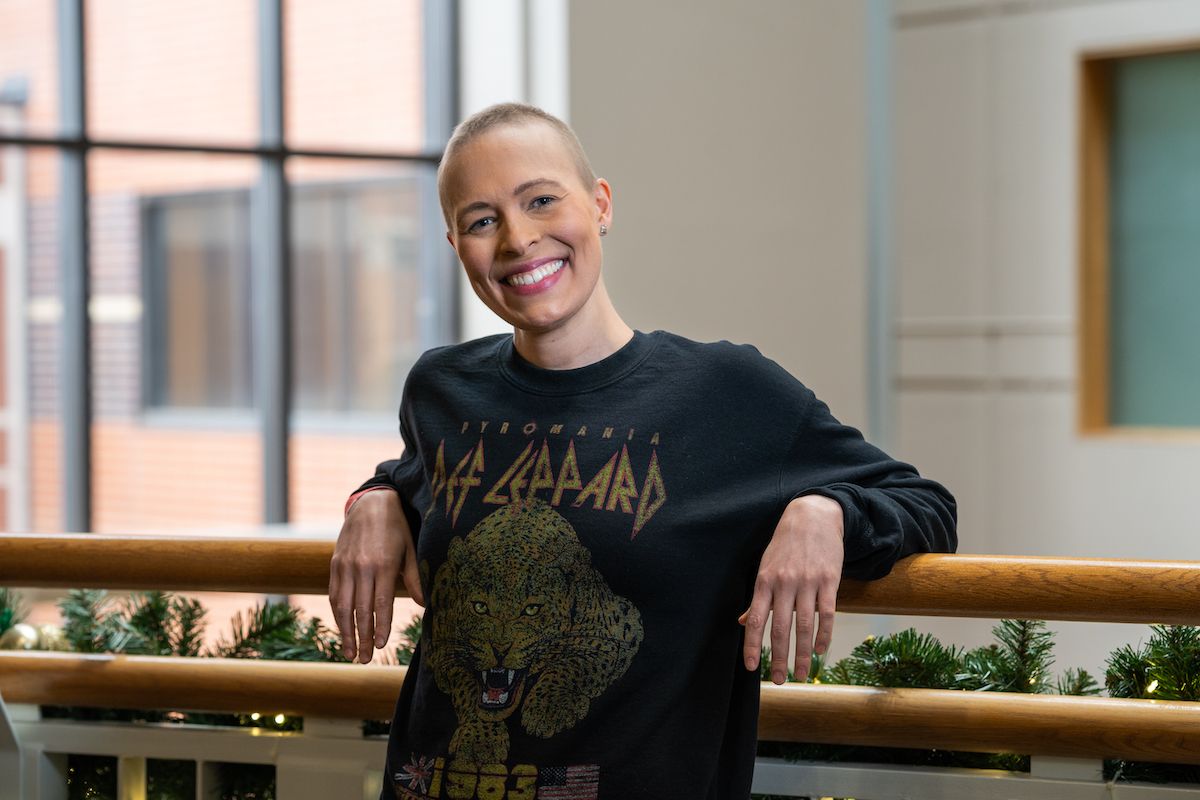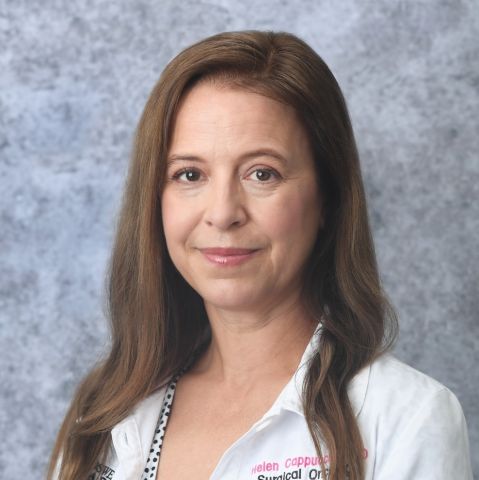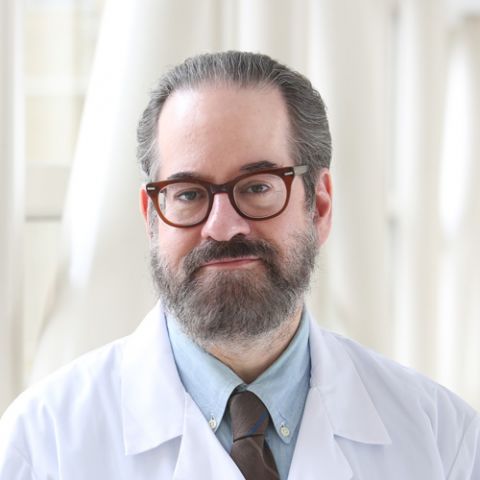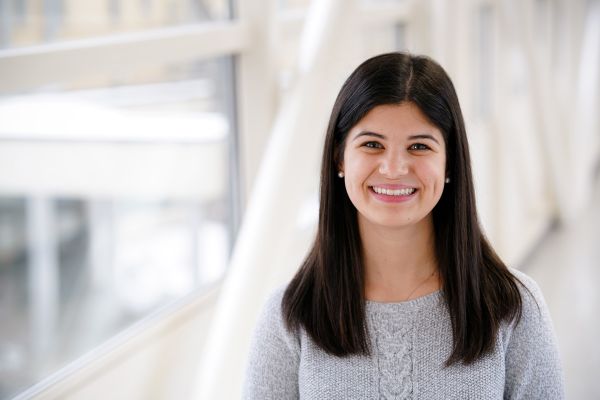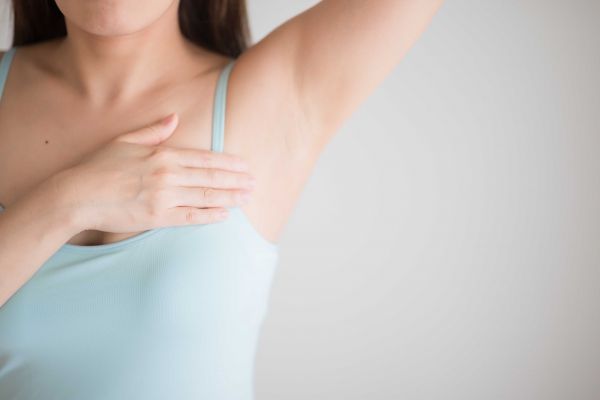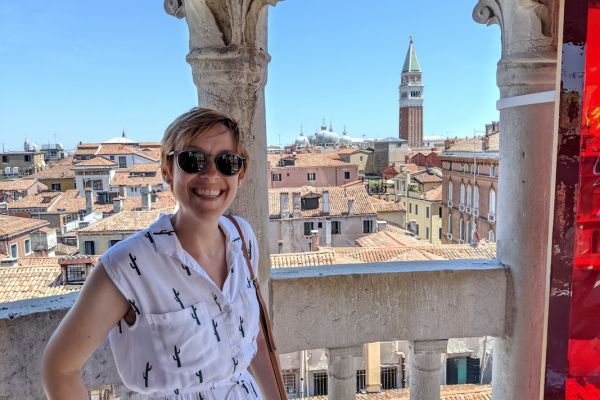Acting on her symptoms led to early diagnosis
While breast cancer is the second most common cancer in women, Sheila Carson never thought it would happen to her. “I had no history of breast cancer in my family. As a former Division 1 collegiate swimmer, I was — and still am — an avid exerciser, a non-smoker and I maintain a healthy weight,” she says, noting lifestyle habits that reduce breast cancer risk. Most surprising of all: “I was only 32 years old in 2020 when I was diagnosed.” Breast cancer is most commonly diagnosed in women over age 50, according to the National Cancer Institute, and a woman in her thirties with no family history of breast cancer has a one in 204 risk for developing breast cancer.
Yet, one day while showering, Sheila noticed a swollen lymph node in her left armpit. “I tried not to worry about it. After all, women’s breasts are often lumpy and change depending on hormonal cycles. But the truth is I was in denial. I was scared and didn’t want to face the reality of the situation,” Sheila says.
While the lump in her armpit remained, a few months later she noticed a pea-sized lump underneath the nipple of her left breast, and she knew she needed to seek medical advice. At the time, Sheila, her husband and their five-year old son lived in Maryland. “I went to my family practitioner, who sent me for a CT scan. Based on the results, I was told I should see an oncologist about the lumps in my breast. But the scan also showed a spot on my liver and somehow that became more of the focus of my medical team,” Sheila says. “After a few months, it was determined that the spot on my liver was nothing serious. But I was increasingly worried about the lumps in my breast.”
“That’s when I knew I had to face reality. My intuition told me that something was definitely wrong and I wanted to be in a place that was simpler to live, with family support and a with a world-class cancer center nearby. We moved back to Western New York, where I grew up.”
Seeking top cancer care brought her back to Buffalo
Back in the Buffalo area, Sheila immediately scheduled a mammogram and subsequent ultrasound at a local facility where she learned that her breast lumps appeared to be malignant. “Without hesitation I decided to go to the cancer experts at Roswell Park. They have so many resources there, all in one place, and due in large part to their resources and research, what was once a much deadlier disease is now treatable and curable in many cases, especially if detected in the early stages.”
Even though she knew she was in the right place, Sheila struggled with the diagnosis. “I felt defeated,” she admits. “I was afraid of treatment and afraid for myself and my family’s future. And that’s when my husband gave me the best advice. As a solider who had sustained a severe brain injury several years ago, he knows the trauma of a life changing diagnosis, and he told me what helped him get through his injuries and treatment: ‘Try not to feel sorry for yourself. Instead, accept your diagnosis and use your energy to fight like hell towards getting better.’ As an athlete, this really spoke to me. Not only is fighting cancer a physical battle; it is a mental battle. The staff at Roswell Park is fighting for me and others facing cancer to survive, and so, even when it was tough, I knew I also needed to dig deep and fight.”
Young Adult Program at Roswell Park
Breast cancer in young women like Sheila is rare, but it does occur. Learn why it’s critical that young adults with cancer seek care at a comprehensive cancer center.
Learn MoreGenetic screening, patient and family resources and more
Through imaging, it was determined that Sheila’s breast cancer was only at stage 2. “Under the care of surgical oncologist Helen Cappuccino, MD, FACS and medical oncologist Ellis Levine, MD, we reviewed my options and devised a treatment plan,” Sheila says. One of the first things was to determine whether Sheila’s breast cancer was caused by a genetic mutation. “I was referred to Roswell Park’s genetic screening services and blood tests showed that I had a variant of the BRCA 2 gene mutation.
Because Sheila’s cancer was localized and the tumor had not spread, she had breast surgery options: she was offered the choice between a lumpectomy (removal of part of the breast) or a mastectomy (removal of the complete breast). “Given that a lumpectomy is a less major surgery with excellent survival rates, I chose a lumpectomy,” Sheila says. Sheila was also scheduled to receive chemotherapy every other week, for a total of eight sessions. “Dr. Levine explained that the chemotherapy could affect my ability to become pregnant again and we discussed fertility-preserving options, available through Roswell Park’s Oncofertility program. I ultimately decided that I was content with the family I already have, so I didn’t pursue any fertility sparing options,” Sheila says.
Before starting chemotherapy, Sheila also visited Roswell Park’s Resource Center. “I knew I would lose my hair, so I wanted to prepare both myself and my son,” Sheila says. “I picked out a wig, provided free of charge at the Resource Center. I also borrowed a book called Nowhere Hair from the Resource Center library and I read it with my son at home, to help him understand some of the changes he would see in me.”
During chemotherapy, Sheila did her best to “fight like hell.” “Even while feeling half dead some days, I started taking better care of myself and eating healthier foods. I tried to keep life as normal as possible for my son. I gardened. I stopped worrying about my bald head and decided I didn’t need to always wear a wig. My family and I even went camping for a couple of weeks between chemo sessions. I rested when I needed to. I laughed with my chemotherapy nurses.”
Breast seed localization offers a more patient-friendly technique
After completing chemotherapy, Sheila was scheduled for her lumpectomy with Dr. Cappuccino. Prior to the surgery, in a process called breast seed localization, a tiny titanium “seed” with a small amount of sealed radiation was inserted into Sheila’s breast to mark the exact location of her small tumor. Roswell Park is one of the only area facilities to use this more patient-friendly procedure that eliminates the use of an uncomfortable “tracking wire” that protrudes from the patient’s breast.
During the surgery, Dr. Cappuccino used a radiation detection device to locate and remove the seed and the tumor. During the same operation — and same incision — 20 lymph nodes were removed and analyzed, and only one showed evidence of cancer.
Sheila still has part of her treatment journey ahead of her, including completing radiation therapy with radiation oncologist Simon Fung-Kee-Fung, MD, but is already thinking forward to the healing. She will soon begin hormone-suppressing medication and will receive care and training from specialists in the Lymphedema Clinic to manage lymphedema in her arm, a condition in which lymphatic fluid builds up as a result of lymph node removal.
Advice from a survivor
Acknowledging that everyone approaches diagnosis and treatment differently, Sheila readily shares some advice to encourage others who are going through cancer treatment.
“Lean on your faith if that helps you. Jesus gave me courage to fight through this,” Shelia says. Roswell Park also has a Spiritual Care Department to support patients and their families and loved ones, regardless of religious affiliation.
“Trust your intuition and be brave enough to act on it. I knew something was wrong, but at first I was afraid to pursue it.”
“You are beautiful, with or without hair, and even with scars or breasts that don’t match each other.”
“Some days you will feel vulnerable and scared, and that’s okay.” Sheila recalls the time she was so nervous about another possible tumor, she vomited during an MRI. “But then I regained my composure and told the nurse I was ready and I completed that MRI.”
“Take advantage of the incredible resources offered at Roswell Park. We are so lucky to have this facility in Western New York. I am confident that I got the best cancer care possible from the amazing people at Roswell Park.”
And of course, “Fight like hell. You are worth it.”
Editor’s Note: Cancer patient outcomes and experiences may vary, even for those with the same type of cancer. An individual patient’s story should not be used as a prediction of how another patient will respond to treatment. Roswell Park is transparent about the survival rates of our patients as compared to national standards, and provides this information, when available, within the cancer type sections of this website.
